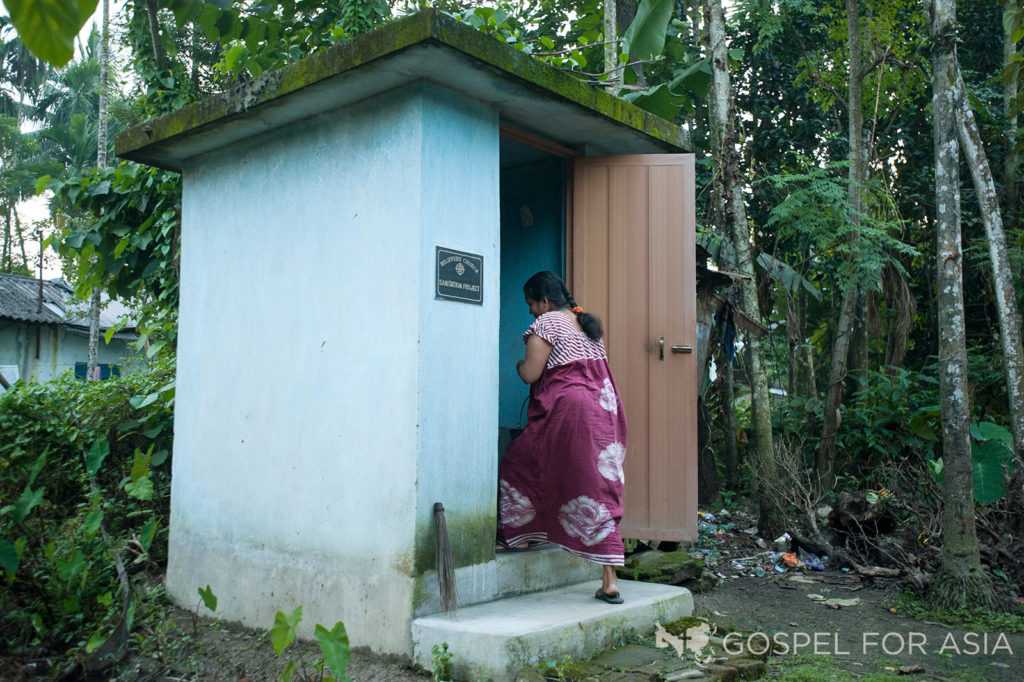NEW YORK – On my first trip to a big city (several decades ago), I saw a sign in the front window of a home. The sign had two lines of large print. The first line said, “Rooms.” The second said, “to let.” In the naivety of my youth, I thought someone had either forgotten or had maliciously removed the letter “I” on the second line. See illustration below.
Yet, according to current United Nations data, 4.2 billion people – more than half of the entire global population “live without safely managed sanitation.” In short, they live without a toilet facility at their home.
The UN defines “safely managed sanitation” people having the use of “hygienic toilet facilities that are not shared with other households and where excreta are either separated from human contact and safely disposed of in situ or transported and treated off-site, thereby protecting people and the environment from disease agents.”
I still can’t imagine living in a home without a toilet. I suppose that most of us would consider not having a place to go as an inconvenience. But it is far more serious than a mere inconvenience. As the old saying goes, “When you’ve got to go, you’ve got to go.”
That why some 673 million people around the world “go” by defecating in the open.
The practice of open defecation is estimated to cause or contribute to more than 432,000 deaths annually due to diarrheal diseases contracted either by direct contact with openly defecated human feces or via mosquitos carrying disease-causing infections.
In fact, at least two billion people around the world drink from water that has been contaminated with human or animal feces.
“Children under the age of five living in countries affected by protracted conflict are, on average, nearly 20 times more likely to die from diarrheal diseases caused by a lack of safe water, sanitation, and hygiene than by direct violence.”
For most Americans, the practice of open defecation is out of sight and out of mind – with the possible exception of cities like San Francisco and Los Angeles where homeless people have begun to openly defecate on city sidewalks and alleyways.
Safe sanitation has been a hallmark of Gospel for Asia’s outreach to the impoverished people in the remote villages of South Asia. Helping to bring these villages out of the despair of poverty and disease requires a holistic approach through which the agency demonstrates the love and compassion of Christ. Erecting safe, sanitary toilet facilities is just as crucial as providing clean drinking water through Jesus Wells and BioSand water filters, providing medical clinics, sponsoring children to attend Bridge of Hope centers, and teaching people to read and write in their own language and in English, and offering skills training so adults can lead a more productive life.
In 2018 alone, Gospel for Asia (GFA) erected 6,431 sanitary toilets for families in South Asia.
We invite you to view this short video to learn a bit more about how Gospel for Asia (GFA) is providing a place to go when people have no place to go.
For even more valuable information about open defecation and how Gospel for Asia (GFA) is helping the people of South Asia, click this link.
To read more news on Open Defecation on Missions Box, go here.
Sources:
- World Toilet Day, This Is Not Just a Toilet
- United Nations, World Toilet Day 19 November
- Centers for Disease Control and Prevention, World Toilet Day
- United Nations, World Toilet Day Factsheet
Image Source:
- Gospel for Asia, Photo of the Day
Video Source:
- GFA on YouTube, 6,431 Toilets Constructed in Needy Areas of Asia!
